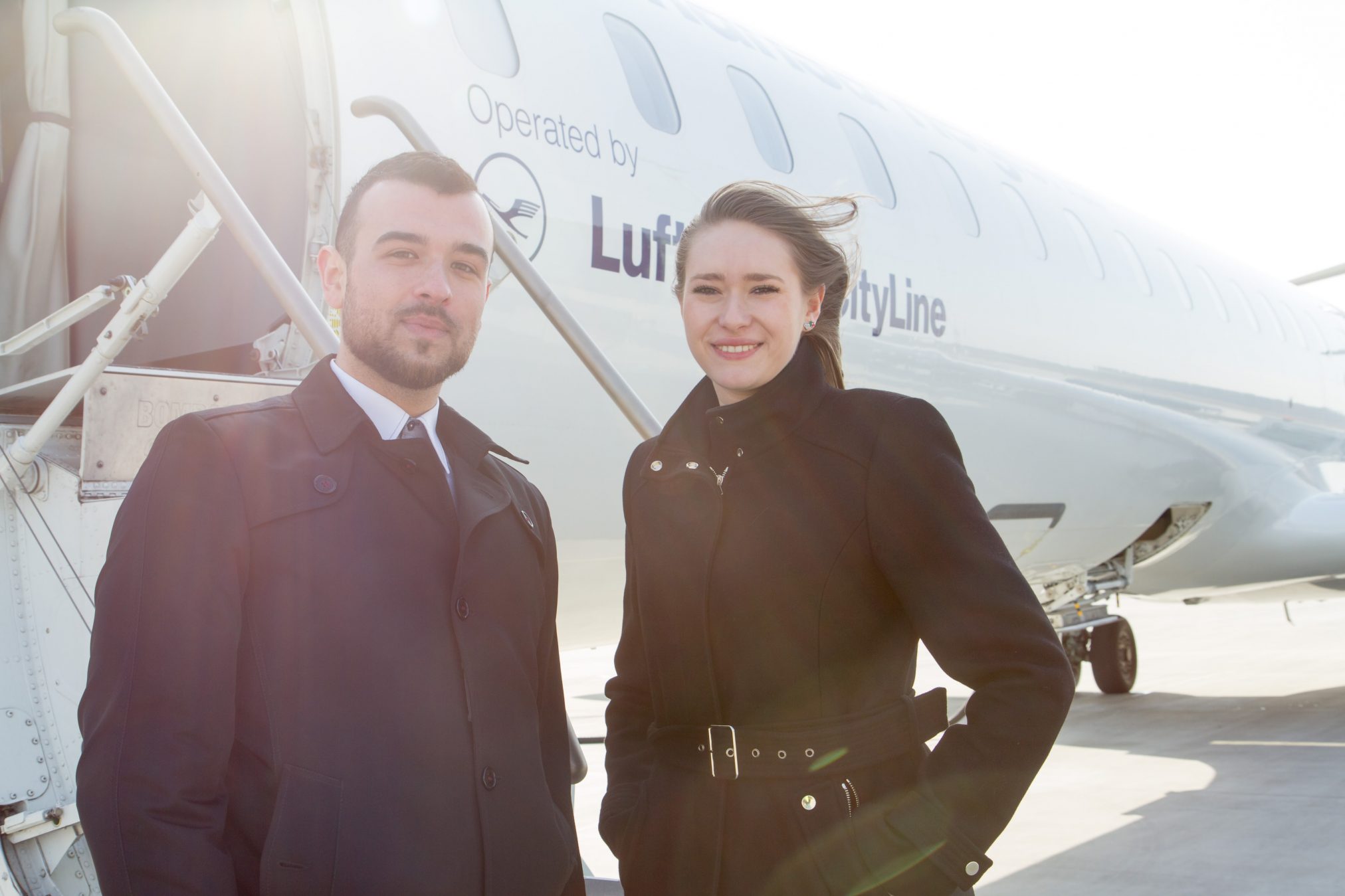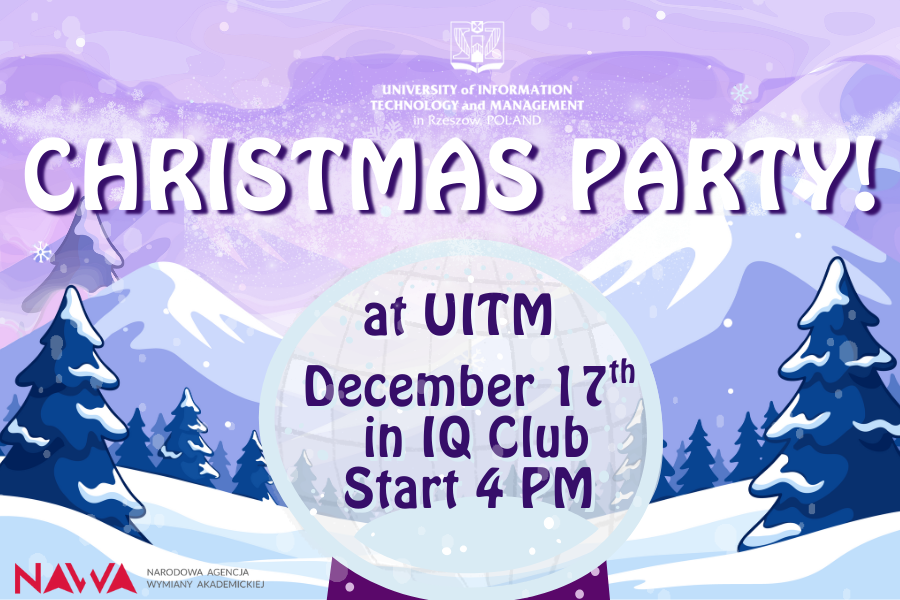
Olesia Iefremova, M.A.
A researcher and academic teacher at the University of Information Technology and Management in Rzeszów, currently at the Institute of Management. In her scientific work, she focuses on competition on the aviation market, strategic management in airlines and research on scientific communication. She is preparing a doctoral dissertation at the University of Gdańsk in economic sciences (‘Shaping the competitive position of a network carrier on the Polish air transport services market on the example of Lufthansa AG’). Privately, she is passionate about growing potted plants.
Flying in the time of COVID-19: what will be our new normality?
2020 has brought the greatest challenge to civil aviation since its inception in the early 19th century. The spread of the COVID-19 virus and the resulting travel restrictions, announced by countries around the world, have stopped passenger air traffic on a scale exceeding the consequences of both after the Gulf War, global financial crisis, the 9/11 terrorist attack and the SARS epidemic. Airlines have become the first victims of the crisis in the aviation industry, but apart from them airports, air navigation, ground handling companies, aircraft manufacturers, leasing companies and others are also severely affected.
What are ‘ghost planes’?
From February this year the global airline network decreased by 80%. Carrier losses will exceed USD 314 billion in 2020. In turn, airports will lose USD 36 billion. The optimistic forecast shows that airlines will return to their previous level of growth at the end of 2021, but the consequences for aviation will be felt even for the next five years. In addition to the obvious negative effects, such as drastic drops in the number of flights, dismissals of employees and loss of revenues, airlines are also struggling with the costs of „maintaining slots” at airports.
Slots are permits for arrivals and departures at the most crowded airports. In some cases, their cost is even tens of millions of dollars. Maintenance of slots according to EU regulations is conditioned not only by paying a high price, but also by using them in 80%. During the COVID-19 virus, it created the phenomenon of „Ghost planes”. Airlines began organizing flights without passengers just to keep the slots. Fortunately, the European Union has responded to this situation and suspended its obligation to use slots during the crisis.
At a time when most traditional flights are cancelled, airlines are still operating, albeit to a very limited extent. Airlines, airports and air navigation handled the return of numerous citizens returning from abroad to the country. In Poland, an example of such an action is #LOTdodomu, which is an undertaking of LOT Polish Airlines, Chopin Airport, PKP Intercity and Polonus. Other airlines in the world carried out similar actions.
In times of passenger restrictions, airlines are focusing on cargo flights, tailoring even passenger cabins. During the epidemic, the demand for fast product delivery has increased and is focused on transporting the necessary materials and medical equipment. Here, an example is a native LOT with the #CARGOdlaPolski action.
State support for the aviation industry
Airlines and airports are a place of employment for many people and drive the economic and social development of regions. Usually, however, they are a very unprofitable business with very high operating costs. Many airlines do not have adequate financial reserves and will not survive the Covid crisis without the support of state authorities. Countries from various parts of the world have already announced support plans for their airlines. For example, the Lufthansa Group will receive EUR 11 billion, Air France – KLM between EUR 9-11 billion, United Airlines – USD 5 billion, and Singapore Airlines – USD 13 billion. Depending on the negotiation, such support may be in the form of a loan or grant or even state participation in the company’s share capital for privatized airlines. LOT can also count on the support of the Polish state and is in the process of discussing its amount and the conditions of receipt.
New normality in flying
Although the epidemiological situation in the world is not stable, airlines are beginning to restore passenger transport. Domestic flights will be overturned first. From June 1, LOT will launch flights between eight airports to support business travel and summer tourist trips. LOT offers tickets at attractive prices for encouragement.

It is not certain, however, whether these lower prices will last for a long time. Several factors can influence the reduction of ticket prices in the short term: low demand, low fuel prices, high supply of airlines, stimulation of demand by low prices. In the long term, however, prices may go up, depending on the introduced requirements for physical distance on board of the aircraft, an increase in the time of servicing the aircraft at the airport for sanitary purposes.
For example, the proposal of an empty center seat on airplanes will significantly reduce airline capacity and, consequently, potentially increase the price of tickets by up to 49%. That is why most airlines and airports support more practical solutions.
The European Union Agency for Aviation Safety (EASA) and the European Center for Disease Prevention and Control (ECDC) call on airlines and airport operators to cooperate to ensure a physical distance of 1.5 meters between passengers. This also applies to service wherever possible, especially during check-in, security checks and boarding. IATA recommends checking the temperature of passengers, airport employees and travellers, reducing cabin traffic during flights, more frequent and deeper cabin cleaning, and simplified catering procedures that reduce crew movement and interaction with passengers during the flight.
Responsible passenger behaviour will be key
During the next air travel we can expect (depending on the airline):
- the obligation to wear a mask during the entire journey, on board an aircraft and at the airport;
- extended waiting times at check-in, security checks, on boarding;
- measuring temperature before boarding;
- the need to declare your health-related to COVID-19 before receiving your boarding pass;
- the obligation to provide contact details in order to allow contact with the passenger if COVID-19 is confirmed with one of the passengers;
- an obligation to maintain a safe distance at the airport (security check, passport control, at the boarding gate, at the boarding, when collecting luggage);
- limited access to food outlets and shops at the airport;
- modified on-board service to limit contact between staff and passengers;
- antibacterial agents on board aircraft (tissues or gels).
In the long term, COVID-19 will accelerate the use of new technologies at airports and on board aircraft. Work is underway on a non-contact on-board entertainment system, the use of robots for on-board catering, immediate safety checks and monitoring of passengers’ health. Even more advanced and widely available will be self check-in and baggage allowance. Further functioning and development of the aviation industry will depend on global epidemiological developments, the recovery of the world economy, a decrease in the unemployment rate, and ultimately on passenger confidence in air transport safety.
The aviation industry is a key branch of the economy and will return as more efficient and innovative after the crisis. You have to prepare for this today. That is why training well-prepared staff for the constantly changing civil aviation market is still a very important and urgent task. At the University of Information Technology and Management in Rzeszów you can already study two fields related to aviation management: Aviation Management – civil aviation management (regular passenger and cargo transport), as well as General Aviation – general aviation management (private, recreational and business travel, air shows, training, tests and experimental flights).


